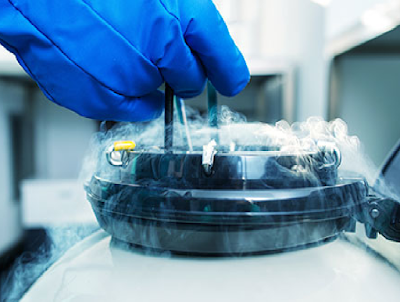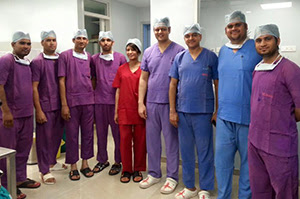Preserving motherhood for when you think
you’re actually ready
The option of banking
embryos, not just for medical reasons but for social factors too, has been a
great conduit provided by modern medicine and sciences. Defying the constraints
of the natural biological clock, women worldwide have been able to plan better
for their pregnancy, and extend their childbearing years through ART and
associated options.
The process of embryo
freezing has been one such breakthrough medical option for childless parents
and couples intending to conceive at later stages in life. It has given women
from all walks of life the liberty to plan their motherhood through storing
embryos for future pregnancies. “This option can give you peace of mind that
whatever happens you may be able to have a family in the future,” says a
spokesperson of the Human Fertilization and Embryology Authority (HFEA), the
fertility watchdog.
With ART advancements, women are fortunate enough to deliver healthy babies whenever they want, irrespective of their physical conditions or ambitions in life. But what exactly happens during the process of embryo cryopreservation or embryo freezing?
“Embryo cryopreservation
is a clinical process that requires a great degree of precision and care. It is
the process of freezing and storing embryos in subzero temperatures to preserve
their superlative quality. Embryos can remain frozen for a prolonged period and
can be thawed to lead to viable pregnancies as and when the couple desires,”
says Goral Gandhi, the Founder as well as Scientific and Laboratory Director at
Indo Nippon IVF, Mumbai, India.
Dr. Goral Gandhi, a leading
embryologist has actively worked towards the science of ART and IVF in India,
helping numerous women in their journey towards parenthood. Training more than
300 embryologists, she has educated doctors, scientists and embryologists in
various aspects of IVF, embryology, and emphasizes on quality care and
management in clinical laboratories.
In cases when a person may wish to freeze their eggs or use them
to plan their later pregnancies, the doctor may recommend In Vitro
Fertilization (IVF) or Intracytoplasmic Sperm Injection (ICSI). The process of
embryo freezing initiates when the patient intakes hormones to ensure on-time
ovulation. Fertility medications also stimulate egg production, which is then
left in the laboratory with sperm produces to commence the process of natural
fertilization. The fertilized egg- called an embryo, is then monitored by an
embryologist, who is vested with the decision to choose a suitable embryo for
implantation.
For when it
comes to embryos, the credibility and accuracy of grading affects the outcome
of the pregnancy, therefore, an embryologist plays a crucial role in deciding
which embryo(s) to go further with, explains Goral
Gandhi, who has done pioneering research work on quality control in
laboratories.
“If you’re at all
considering starting a family and are not necessarily exactly where you want to
be for any reason, it’s a good idea to come in and talk to a fertility
specialist about freezing embryos, or about other options. So I think knowledge
is power and there are a lot of options,” 





No comments:
Post a Comment